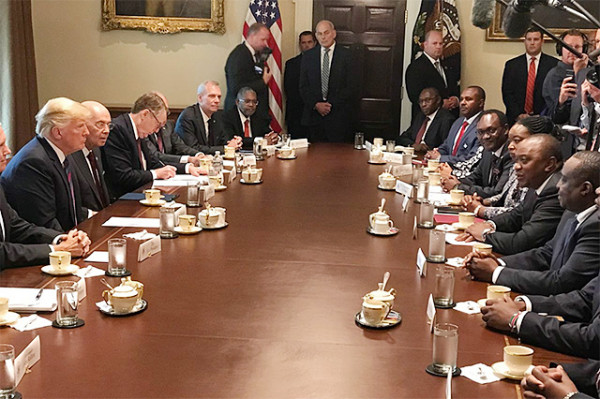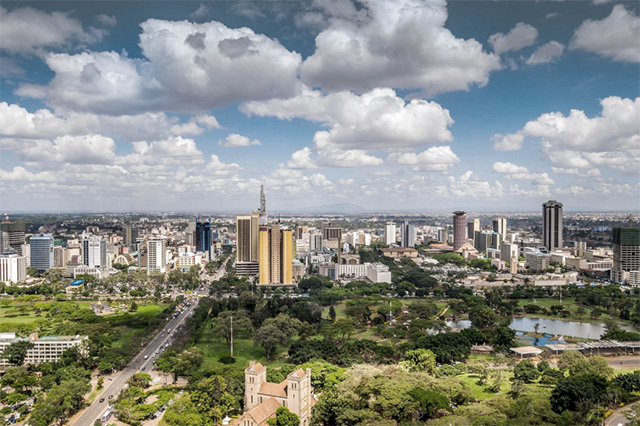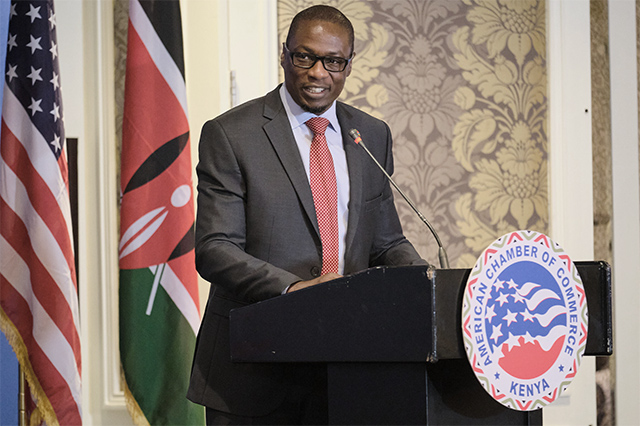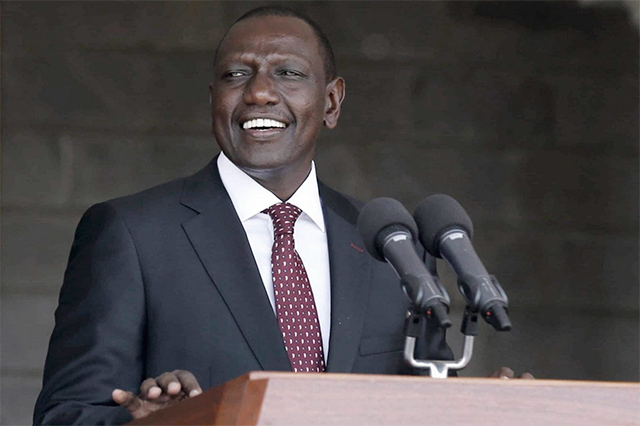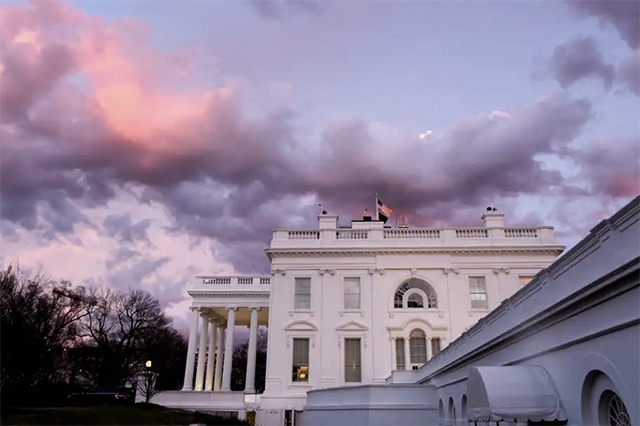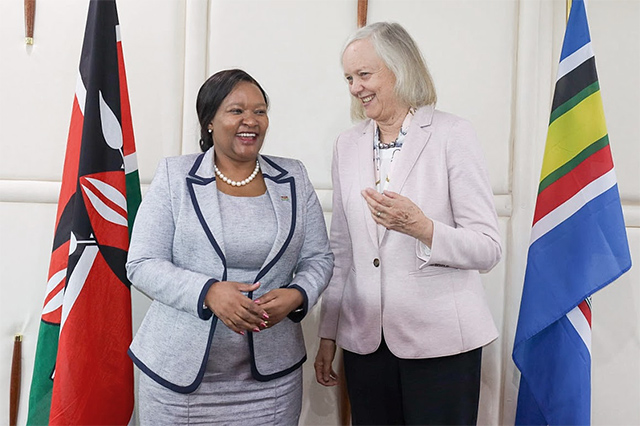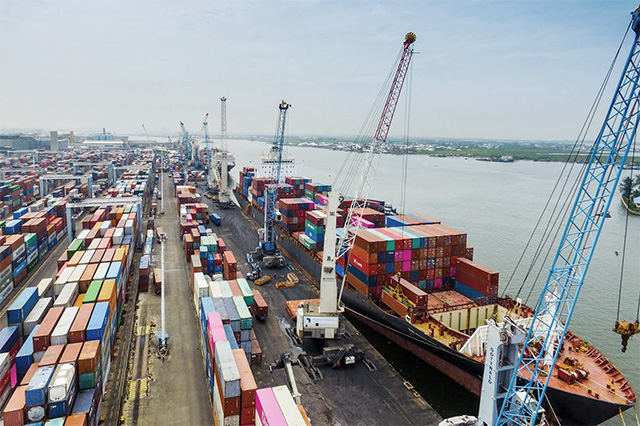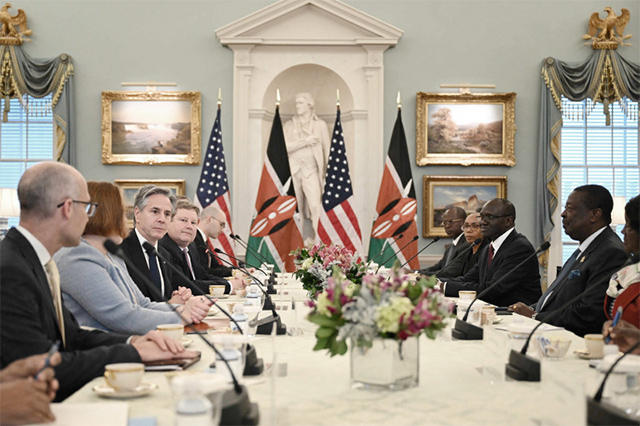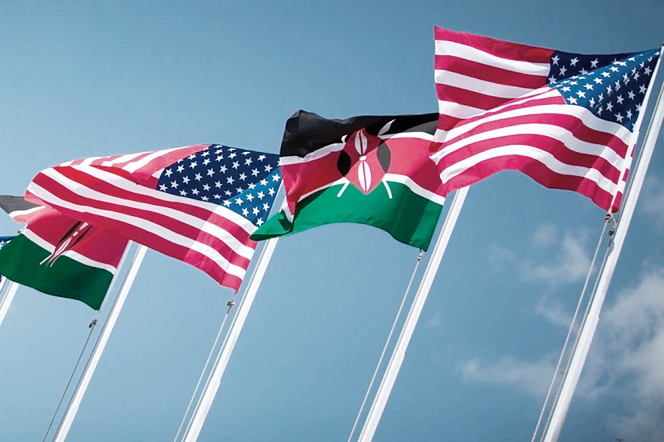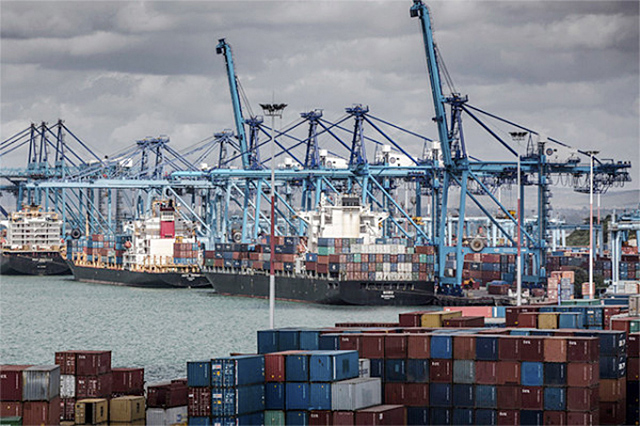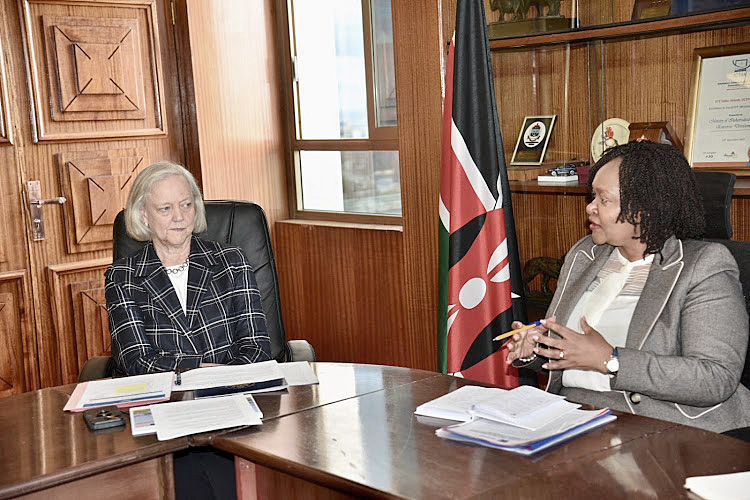The US and Kenya launch negotiations on a free trade agreement. Will they succeed?
Despite the coronavirus pandemic, the Trump administration and Kenyan government launched trade negotiations in early July.
Depending on the outcome of the negotiations, which were held virtually, the trade agreement could be the most significant development in U.S-Africa trade relations since the African Growth and Opportunity Act (AGOA) passed Congress in 2000.
Indeed, according to the U.S. Trade Representative (USTR), Ambassador Robert Lighthizer, the U.S.-Kenya agreement will become a model for future trade agreements with other African countries.
Then again, while the U.S. and Kenyan governments have a strong commitment to a successful outcome, the challenges cannot be minimized.
Both sides have described what they hope to achieve in the negotiations.
The U.S. objectives are predictably comprehensive. USTR has identified 24 chapters on which it plans to negotiate, including technical barriers to trade, intellectual property, digital trade, anti-corruption, good regulatory practices, and subsidies, among others. Kenya’s statement of objectives is equally fulsome if not quite as detailed.
The Ministry of Industrialization, Trade, and Enterprise Development has identified 22 chapters it intends to negotiate with the U.S.
At this point, the political commitment to the negotiations of both leaders is of paramount importance. President Uhuru Kenyatta is one of the few African leaders to have established a positive rapport with President Trump and is the only African leader to have made two visits to the White House.
In the wake of their second meeting in February, the U.S. Chamber of Commerce established a U.S.-Kenya Trade Working Group to build mutual trust and seek common ground between the parties on key trade priorities for the business community.
While these negotiations are intended to produce the first bilateral trade agreement with a country in sub-Saharan Africa, negotiators will have to navigate a number of challenges including:
Regional agreements
One of the most frequently asked questions is how a U.S.-Kenya Free Trade Agreement will impact efforts to implement the African Continental Free Trade Agreement (AfCFTA).
So far, USTR’s statement on this issue has been ambiguous, saying only that the U.S. will “support regional integration, where appropriate.” U.S. businesses and groups such as the U.S. Chamber of Commerce avow that they support both the FTA talks and the AfCFTA, and that the two mutually reinforce Kenya’s growth and development goals.
President Kenyatta has also sought to dispel fears that the ongoing trade talks between Kenya and the U.S. will undermine the AfCFTA. In his view, Kenya’s trade deal with the U.S. will assist the continent more broadly by creating a reference upon which other African nations can negotiate bilateral arrangements within the AfCFTA framework going forward.
Kenya also has obligations as a member of the East African Community (EAC) Customs Union. Like its fellow EAC members, Kenya applies a common external tariff and may have limited latitude to negotiate concessions in that area. As for the future of AGOA, USTR has not indicated whether it supports an extension past 2025 for those African countries who have not negotiated a free trade agreement which, obviously, would be the majority of current beneficiaries.
Taxes on data
Few countries have advanced as quickly in the use of mobile-based financial services and digital transformation as Kenya. In an effort to derive more revenue from digital transactions, the government recently imposed two taxes: A 1.5 percent digital services tax, which will take effect on January 1, 2021 and an earlier withholding tax charged on “marketing, sales promotion and advertising services provided by non-resident persons.”
American technology companies find these taxes discriminatory. In fact, last month, the U.S. announced tariffs on some French goods in retaliation for France’s unilateral digital services tax targeting American companies. While this matter has not been directly linked to the trade talks, it remains to be seen how the U.S. might approach this issue in the negotiations. How will efforts to resolve this matter in the OECD factor into discussions between the parties?
Genetically modified organisms (GMOs)
U.S. agri-food industries are innovators in GMOs and related technologies that improve yields and reduce the need for chemical fertilizers and pesticides. Kenya is adamantly opposed to the importation of any foods that have been genetically modified. In fact, these foods are not allowed to enter or transit Kenyan ports for other destinations.
Like the WTO Sanitary and Phytosanitary Standards (SPS) agreement, U.S. trade agreements require that SPS rules be science- and evidence-based, which sets up a clash with Kenya’s stance on GMOs.
This disagreement could impact small and medium enterprises, especially in the agriculture sector, that rely on low-cost feedstock and other inputs. Based on conversations with industry representatives in the U.S. and Kenya, we anticipate that both sides will be able to find a satisfactory resolution on this issue.
The calendar
Trade agreements can take several years to negotiate. In just over three and a half months, the U.S. will hold its presidential elections. As we saw in the transition from the Obama to the Trump administrations, trade negotiations can be scuttled. If Biden wins in November, will his administration continue the negotiations with Kenya? The strong bipartisan support that has existed in Congress over the course of four administrations for programs in Africa suggests that there will be continuity on this initiative.
Another challenge is that Trade Promotion Authority (TPA)—the law that lays out parameters for consultations between the administration and Congress and ensures an up-or-down vote on the final deal—will expire in July 2021. Without TPA, the eventual implementing bill could be amended by Congress, potentially unraveling it.
Another potential complication is that President Kenyatta’s second term ends in 2022. He sees the FTA as a legacy issue. Will it be completed by then? And then, there is the reality of COVID-19. In fact, shortly after the first round of virtual negotiations, the Kenyan government paused the trade talks over concern that its negotiators were exposed to the coronavirus.
The talks between Kenya and the U.S. on a free trade agreement set a new marker for increasing the competitiveness of U.S. firms in one of the continent’s most vibrant economies and regions. They also pave a path for Kenyan businesses to build on the successes of AGOA, while locking in trade benefits such as market access beyond 2025. In completing this agreement, the U.S. will send a strong signal that it is serious about the importance of Africa, its people, and its long-term prosperity.
- Witney Schneidman, Nonresident Fellow - Global Economy and Development, Africa Growth Initiative
- Brionne Dawson, Senior Director - U.S. Chamber of Commerce


